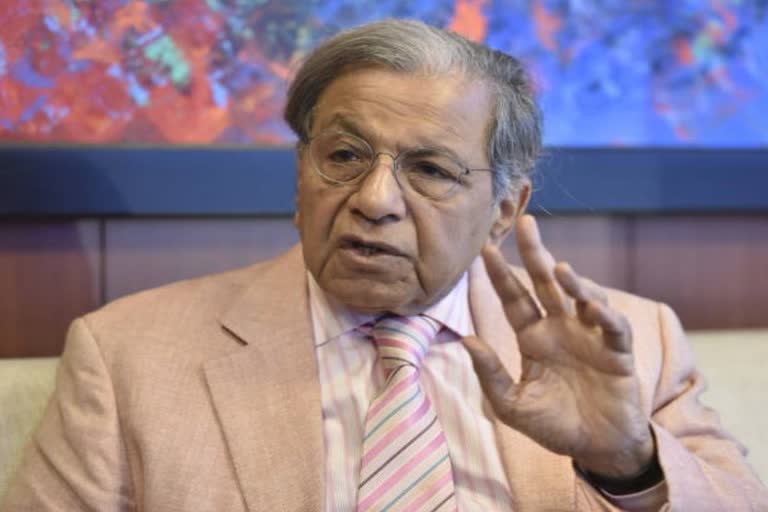New Delhi: 15th Finance Commission Chairman N K Singh on Thursday said it would categorise states on the basis of high, medium and low growth rate, considering their diverse growth patterns.
The commission is currently grappling on whether and on what factors can a convergence be achieved, recognising the significant heterogeneous growth patterns of different states.
"In the Finance Commission today, we were discussing assignment of growth rates to different states for the purpose of period of my award (2019-20 to 2024-25) and what are the factors that go into some states growing much faster, is there a congruence, is there no congruence," Singh said.
He said in its internal working, the commission has found it "sensible" to categorise the states in three categories.
"We found it was more sensible to look at the categorisation in three bands between the high growth rate, the middle growth rate and low growth rate states. So, we are looking at what are the prompters of change which has resulted in this," Singh said.
Read more:Explained: Reasons behind the gap in India's wholesale and retail inflation rates
Speaking at the India Policy Forum 2020 organised by National Council of Applied Economic Research (NCAER), he said the resources devolved to states with low per-capita income have not lead to any evidence of convergence of the states.
"So, what are the factors that will lead to a better convergence, is seeking convergence a desirable national objective," he said.
Singh added that for the last 30-40 years, Finance Commissions used the classical method which is known as 'equalisation formula' .
Among the states, Punjab has exhibited stagnation in its growth trends "which is quite extraordinary", he said.
"Perhaps it failed to move out of agriculture ... surprisingly the growth trends in Punjab have lagged significantly behind even some of the traditionally poorer states like Bihar and Uttar Pradesh," Singh added.
(PTI Report)




